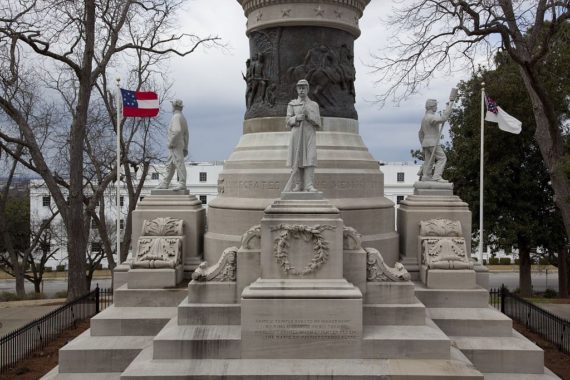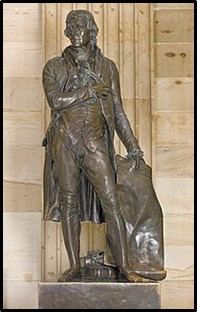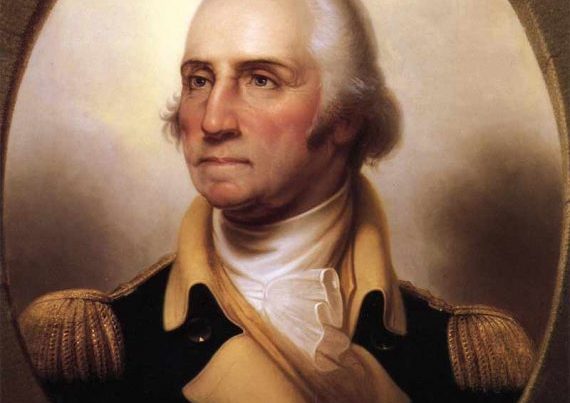The political market, as the economic market, has the demand and supply dynamic. Interest groups make demands and the politicians provide the supply. In the case of Confederate memorials, interest groups demand Confederate memorials be dismantled in the public interest; the politicians supply the dismantling. The political market responds to strongest political forces. The strength of interest groups in the political market depends upon their bearing the costs of organizing and capability of exchanging something of value to politicians, i.e., votes and campaign funds.
In New Orleans, for example, the dismantlers prevailed due to the fact that they are politically stronger than their opponents in the city, but not necessarily in Louisiana; whereas, in the State of Alabama the dismantlers are weaker statewide, but not necessarily in certain cities.
This brief introductory lesson in politics, obvious as it is, is an important one. Namely, the decision to preserve Confederate memorials will be decided not on truth but politics.
When we dig deeper into the political process and focus our attention on the costs of organizing for the public interest things get a bit more complicated. The movements to remove Confederate memorials were not spontaneous events, but part and parcel of a larger, carefully orchestrated scheme. This movement neither began, nor will it end, with placating the demands of misinformed vandals in some Southern cities; it is much more sinister and alarming than the removal of all things Confederate. These are simply overt skirmishes in a covert war to remake America.
Alabama’s recent statutory response to defend Confederate heritage is essentially a rearguard action in this war against genuine republicanism. The belligerents in this war are identifiably in two camps: the revolutionary aggressors and traditionalist defenders. The latter are instinctively defending the traditional Western political order, the pillars of which are Christendom, the rule of law, and government based upon the consent of the governed. The former shrewdly seek to establish secular humanism, the rule of elites, and a rule of law sanctioning a Marxist dystopia.
The aggressors are on the march and the 2017 Alabama statute has all the signs of a defensive action by a retreating army. The mere fact that statutory intervention is necessary indicates that Reconstruction is alive and well, and the “Reconstructors” have an insatiable appetite to devour all things remotely connected to a past that does not conform to its dystopian ideals.
Alabama will ultimately submit to the power of the aggressors, these are the hard political facts. First, the University of Alabama football establishment will submit to the pending NCAA boycotts, just as the North Carolina legislature recently capitulated to the NCAA boycott of the State by replacing a law regulating transgender access to bathroom and locker room facilities.
Second, when the Democrats resume their occupation of the Federal Government, Alabama’s political class will alter its stance when confronted with the withholding of Federal intergovernmental transfer funds to education, highways, law enforcement, and the like.
Finally, the language of the Alabama’s new law will ultimately prove its undoing. Section 5 of the Statute created the Committee of Monument Protection (CMP) which is empowered to selectively grant waivers to the act. In time, that committee will eventually be stacked by managerial bureaucrats whose primary ambition is job security and promotion up the bureaucratic ladder. The CMP may stem the tide of removal, but it is a certainty that monuments will be incrementally removed.
Of course, defenders of the memorials have history, reason, and decency on their side. They engage their adversaries with an innocent naivete, believing in large measure that the aggressors are reasonable and decent. That naivete leads them to a type of discourse designed to educate their adversaries about the history of the Confederacy and its leaders. They foolishly hope that, once educated, the aggressors will come to terms with the defenders and respectfully leave the memorials in place. This is fantasy. The assault on all things Confederate is essentially one battle in a protracted war. The ultimate objective of this war is the total burning down of traditional American civilization, and to reconstruct upon its ashes an anti-Christian, anti- private property, civilization ruled by elites.
This is not hyperbole. There is a hubris in the aggressors which is justifiable. They have won battle after battle with little or no resistance: prayer has been removed from public schools, Nativity scenes have been removed from public spaces, abortion is now a fundamental right, as is Sodomitic marriage, private property rights have been eviscerated, gender is now “fluid,” schools have become breeding grounds for cultural Marxists, and above all rings the mantra of “white privilege.”
Hubris in politics is a dangerous phenomenon. It breaches the checks on governmental power and coercion becomes the norm, coercion that ranges from ostracism, to financial duress, to the gulag and eventually to the guillotine.
This is not a laughing matter. The belief system of the ruling class, secular humanism, i.e., “Good without God”, is antithetical to the Declaration’s affirmation that people are “Endowed by their Creator . . . [with the] unalienable rights of life, liberty, and the pursuit of happiness.” Secular humanism rejects this fundamental premise of American civilization. Consider the core principles of that belief system as articulated by the American Humanist Association:
–Humanism asserts that the nature of the universe depicted by modern science makes unacceptable any supernatural or cosmic guarantees of human values.
–Religious Humanism considers the complete realization of human personality to be the end of man’s life and seeks its development and fulfillment in the here and now. This is the explanation of the humanist’s social passion.
–We assume that humanism will take the path of social and mental hygiene and discourage sentimental and unreal hopes and wishful thinking.
–The humanists are firmly convinced that existing acquisitive and profit-motivated society has shown itself to be inadequate and that a radical change in methods, controls, and motives must be instituted. A socialized and cooperative economic order must be established to the end that the equitable distribution of the means of life be possible. The goal of humanism is a free and universal society in which people voluntarily and intelligently cooperate for the common good. Humanists demand a shared life in a shared world.
This is nothing more than repackaged Marxism, in which State is the church, the global elites its high priests, and the people the flock to be managed, fleeced, and slaughtered if necessary.
This is not a recent development. Leaders of the Confederacy understood that they were fighting on behalf of the founding principles and Christianity. General Lee, for example, was convinced that the cause of the Confederacy transcended the temporal and partook in the eternal.
General Lee was not the exception. Leading Southern clergymen had been sounding the alarm for years. This perspective finds expression in an 1860 pamphlet titled “The Bible or Atheism” addressed to “the Young Soldiers of the South”. It addresses “the world’s skepticism . . . the delusions of supposed rationalism . . . infidelity, and even atheism . . . the dreary gloom of a cheerless materialism” intruding upon the “peaceful ways of the Christian’s life.” Its author goes through a step-by-step refutation of atheism’s critique of Christianity and warns the Southern soldier not to be swayed by the flawed reasoning of Hume and Comte. Another influential clergyman maintained that not all Northerners were tending towards atheism, but the trajectory of Northern intellectual and moral developments were.
Lord Acton may have been more prophetic that he realized, when he wrote to General Lee in 1866 that “you were fighting the battles of our liberty, our progress, and our civilization.” Fast forward to 2017, we are now reaping the whirlwind of bad seed sown over generations.
One of these false seeds is the notion that the Confederacy was formed and fought to preserve and expand slavery. Is it any wonder that the removal of Confederate memorials is inevitable? In public opinion, to defend Confederate memorials is tantamount not only to defending slavery, but to its reinstitution. This reveals how far down the rabbit hole public opinion has fallen (and how little stock should be placed in it). In this rabbit hole, gender is chosen, property is held at the discretion of the political market, and immigration is open to all, to name a few.
The warfare adage to survive, recover, and retaliate is something supporters of Confederate memorials need to take to heart. Foremost they need to recognize the enemy. The enemy is not the morons demanding the removal of those memorials, but the centralization of governmental power that made the removals inevitable.
In 1866, Robert E. Lee advised his fellow Southerners that “All the South has ever desired was that the Union, as established by our forefathers, should be preserved, and that the government as originally organized should be administered in purity and truth. If such is the desire of the North [ruling elites], there can be no contention between the two sections, and all true patriots will unite in advocating that policy . . . to perpetuate true republicanism.”
There is no longer “true republicanism” in these united States. There is contention. General Lee would gladly submit to the removal of his memorials if it leads patriots to focus on the real enemy, the concentration of power in the hands of the few at the expense of true republicanism.
Obviously, the ruling elite rhetorically gives lip-service to Christian values, as did Mr. Lincoln, in order to dupe an unwitting populace into the trap of secularism and centralized political power. However, the ruling elites, including Lincoln, should not be judged by their rhetoric, but by their actions and inactions. Such judging may be beyond the capability of most Americans, due to the fact that Americans, for generations, have been subjected to a “social and mental hygiene” advocated by the humanists and operationalized by government.
In 1868 General Lee remarked “I grieve for posterity, for American principles and American liberty.” In a few short years there might be little grieving, if those principles and that liberty have been wiped from the American consciousness. The best remnant traditionalists, South, North, East and West, can do under current circumstances is to maintain the consciousness of the Founding principles of 1776 and 1861, and come to the realization that the enemy is government, under the control of evil manipulators.
It is necessary to strike at its heel at every opportunity, the first strike being its illegitimacy. To make that strike is a doable act of the will. The failure to do so is also an act of the will, but also an indicator of the desire to be a self-governing citizen in a free society, or a slave to the ruling elites. General Lee had the same decision to make in 1861. As the vandals tear down his memorials, let the truth behind those memorials rise in you and yours. Then, and only then, will true republicanism have a chance to rise again.







